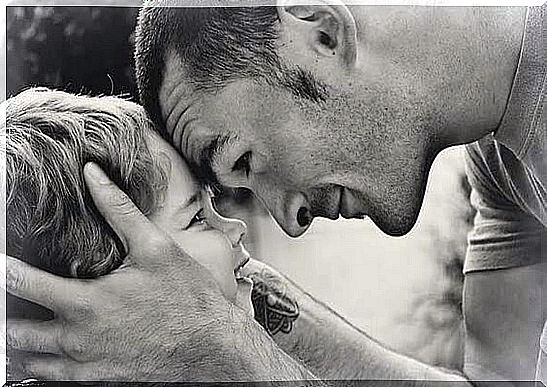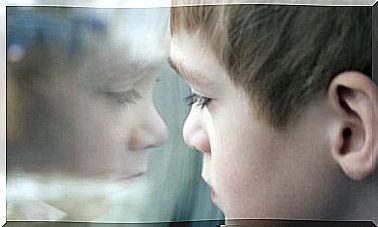Mom And Dad: I Want To Learn To Be Independent

For many people, independence is a very difficult challenge that requires a great deal of effort and determination. To be psychologically independent is to have an attitude towards life filled with courage, love and confidence in one’s own potential.
But despite all the benefits of having this attitude towards life, it is not that easy for some people. Primarily because they have not learned to be independent. Some people are not taught to have this attitude as children, and later life inevitably pushes them towards it.
Learning to be independent does not mean you have to be foolhardy
When we encourage children to do things themselves, we send them a clear message. We tell them that they are capable of coming out into the world and that we believe they can handle it. That way, they will stop looking at others and start exploring the resources available to them. “If others think it’s the key, then I’ll have to look for it. ”
But we should clarify a few things. When we say “independence”, we do not encourage foolhardiness. We are talking about reasonable challenges that are necessary for healthy personal development. A child can learn to be psychologically independent to the extent that their parents trust that they can solve certain problems themselves.

If we do not let them make mistakes, they cannot learn
Here is an example that can help you understand this a little better. A child learns to count. The child was taught it in school and now it is time to do homework to practice it. At this point, one of the parents shows up and notices that the child is struggling with it.
Seeing her child struggle with this challenge can tempt parents to do the work for them. In fact, some incredibly talented children get adults to do homework for them as they know how to persuade them. But giving in to this temptation is not in the best interests of the child. Parents can help calm their child’s anxiety about the challenge or even start on the task of focusing their child’s attention. But they must not do their homework for them.
We must give children space to act. If we intervene too quickly and do not let them try to do it themselves, we will send them the message that we do not trust their abilities. We tell them that the challenge is too difficult for them, so they have to give up before they even try.
For children, our trust is a great gift
In the example above, parents could go another way. They could sit by their child’s side and let them do the math themselves. The child will do his best and it will make mistakes. Parents can help them through the trials and tribulations and point things out without giving them the answers.

We must allow them to make mistakes, because in that way they learn to calculate correctly. And then we also give them space to get acquainted with the process, be in doubt and solve it themselves. That way, they will find the way themselves and they will not get stuck again.
They will understand where they made the mistake and fix it. Learning this will make them feel competent and energetic. This new perception of themselves will allow them to deal with their small problems with more confidence and security in their own abilities.
By helping them in this way, one does not leave them to go through adversity alone. One helps them develop their intellectual abilities. You help them give it a try, create new opportunities and try. This will all create new connections in their brain. That is why the role of the family is so crucial to achieving this goal.
Being overprotective blocks their opportunities for growth
Being overprotective involves a form of immediate help where the adult intervenes in every little problem their child faces. The child will learn that there will always be someone to solve all their problems for them. They will stop trying to do things themselves. Because there will always be someone to do it for them. All they have to do is sit, smile and wait.
This quick help is meant to send a message of care and love to the child: “I do everything for you because I love you.” But beneath it all is the message: “I do everything for you because I do not think you can do it yourself.” It will inevitably give them the idea that they are not capable of doing things themselves.
The consequences of overprotection of children
Therefore, they stop trying, experimenting and making an effort and they will miss out on opportunities for growth. They will leave their lives more and more to their parents. But it does not come at no cost and results in a number of consequences:
- They will often ask their parents for help with their homework
- They will become discouraged when they face the slightest resistance
- They do not handle frustration very well
- They become insecure and dependent on others
- They get a low self-esteem and a bad self-image
That is why it is important to help children make discoveries themselves, to make mistakes, to try new things, to deal with frustration. That way, they learn that they have the resources and abilities to solve most, if not all, of the problems they encounter in their lives.

We end this reflection with a Chinese proverb that you have probably heard many times: ” give a man a fish and he has food for a day, teach a man to fish, and give him food for life. ” So now we want to encourage all parents to teach their children to fish instead of giving them a fish at the first sign of trouble so they can try things for themselves. This will be a very useful and necessary lesson that they will take with them into the future.









